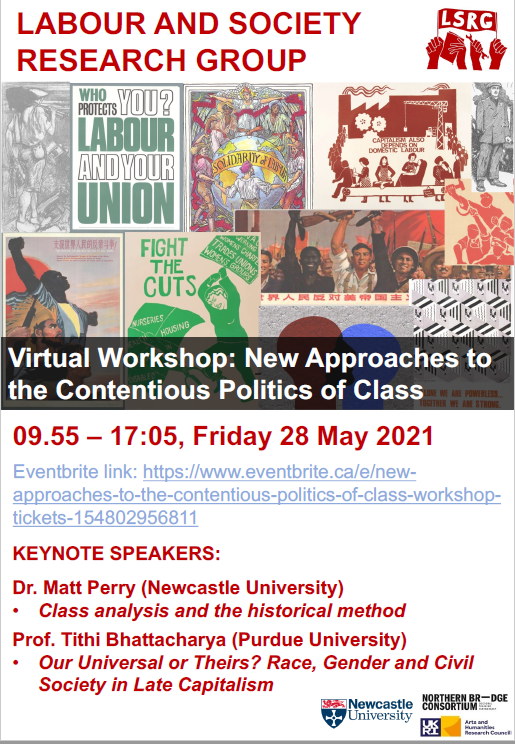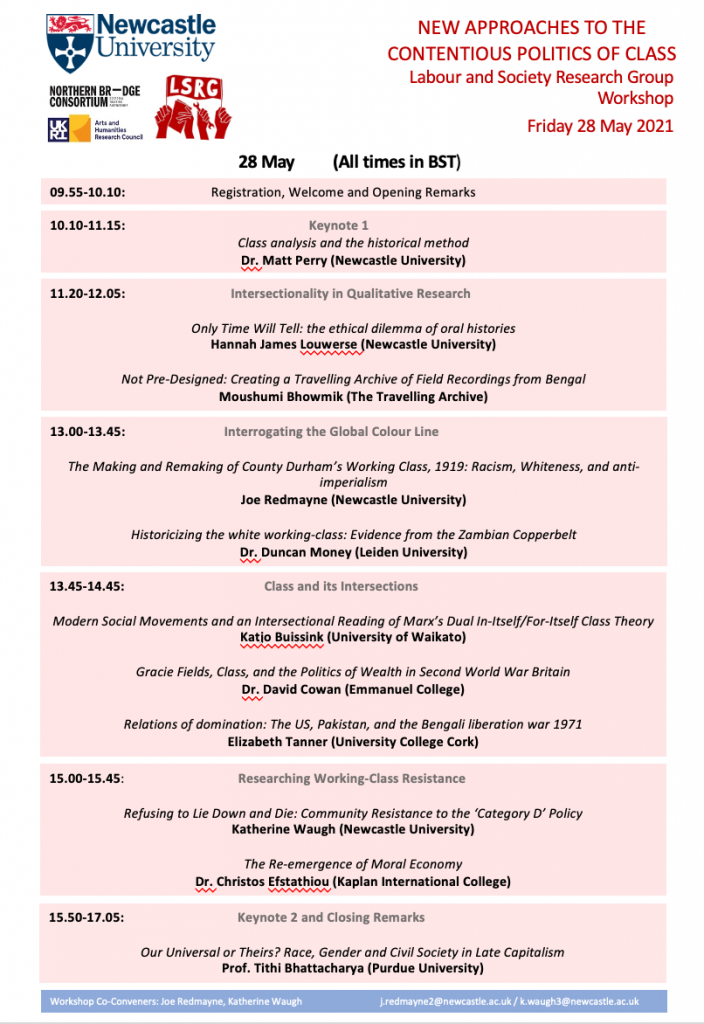Upcoming events which may be of interest to Labour and Society members are listed below in date order. You can also find information on ongoing activities, such as our reading group.
Virtual Workshop: New Approaches to the Contentious Politics of Class, Newcastle University, 28 May 2021
Download the full program here
In cooperation with Newcastle University, Northern Bridge Consortium (NBCDTP) and the Labour and Society Research Group (LSRG) Convened online via Zoom, Friday 28 May 2021 Keynote speakers: Dr. Matt Perry (Newcastle University, UK) Professor Tithi Bhattacharya (Purdue University, USA) This cross-disciplinary workshop aims to explore the evolved understandings of class in both domestic and transnational contexts throughout the twentieth century and in the contemporary world. In particular, the centrality of the working-class within debates around recent political decisions and trends, such as the vote to leave the European Union, austerity and the resurgence of farright thought, makes now a pertinent time to discuss the meanings of class, but also invites consideration of the historical significance of class more broadly. There has been a renewed interest in the micro-level experiences of class, leading to consideration of the affective and emotional meanings of class. Equally, in exploring the historical intersection between stigmatisation and class, greater attention is now paid to further layers of marginalisation as a result of gender, race, age or disability. Prompted by the subject of global labour history, this workshop aims to draw attention to the complexity of a multi‐racial, multi‐ethnic, international working class (Lucassen, 2006; Van der Linden, 2008). It embraces studies of gender, race, and postcolonialism to understand the globalised webs in which key issues of labour are located, such as colonialism, neo-liberalism, and industrial decline. In doing so, the workshop considers the salience of memory and nostalgia within understandings of class, both historically and in the present day. Furthermore, it questions how class and its related intersections have been employed to generate solidarity and resistance in some instances but used to sow disunity and stigma in others.

